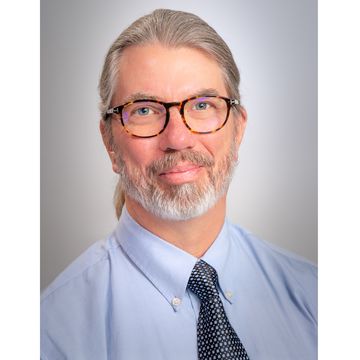
Persisting in a Pandemic
UNM College of Nursing Helps a Rural Clinic Finds Ways to Continue Serving Patients
COVID-19 is dominating the headlines, but other acute syndromes, accidents and chronic conditions aren't halted by "stay-at-home" strategies.
But as social distancing becomes the norm - and high-risk patients are taking extra precautions - health care providers are finding that assessments, triage and treatments for a multitude of health concerns can be severely affected.
Bernalillo-based El Pueblo Health Services (EPHS) recognized the problem early and worked proactively with UNM College of Nursing Faculty to devise solutions to ensure that patients' needs would continue to be met.
EPHS has been a providing comprehensive health care services to Sandoval County residents for 40 years. Providers at this busy clinic see patients of all ages, from both urban and rural communities.
In early March, EPHS executive director Rick Adesso sought the help of Van Roper, PhD, RN, associate clinical professor in College of Nursing, to implement a strategy to deal with the COVID-related disruptions.
When Gov. Michelle Lujan Grisham issued the statewide stay-at-home order on March 16, the new EPHS protocols were ready to implement the next day.
"We changed our delivery model and revised schedules," Adesso says. "Providers work from home and rotate through the clinic on a limited basis to see patients that really need to come in. We encourage those who are otherwise healthy to stay home, and offer them phone call and video visits."
Roper, who also practices one day a week at the clinic, was instrumental in the transition, from identifying the best telehealth options for meeting clinical needs to training providers and staff on how to use the software.
"We went with Zoom for Healthcare," he says. "It's a HIPAA-compliant platform, and the cost was reasonable. Nothing can be recorded on their network, so there is no break in security."
Providers conference regularly, discuss the management of specific cases, and address some of the challenges inherent in delivering health care at a distance. For example, not everyone has a suitable device, some patients are uncomfortable using technology, and lack of infrastructure hinders connectivity.
It's a matter of asking the right questions, Roper says. "What is the patient's experience? If they have a smart phone, do they have privacy issues, are they self-conscious about us seeing them, or their home? What do you do if you're talking to person in abusive relationship who can't leave the house? We need to understand how we can help."
Roper recently received a grant from the UNM Clinical & Translational Science Center for a pilot project exploring remote patient monitoring to expand the effectiveness of the telehealth model.
His research proposal,"COVID-19 Just-In-Time Rural Telehealth Implementation in FQHC Primary Care Network," involves the distribution of equipment to help patients measure their own vital signs.
"We'll create kits with a bathroom scale, blood pressure cuff, electronic thermometer and pulse oximeter," he says. "We might include a smart phone with a year of unlimited data, and some patients would benefit from having a high-resolution camera. Once we teach them how to use these devices, we'll be able to keep an eye on our more complex patients, without them venturing out of the home."
As a rural health clinic, EPHS and its patients will be involved in the project. A close working relationship has developed between the College of Nursing and EPHS over the past nine years, and includes collaboration on grant-funded programs.
Three other College of Nursing faculty members are involved at the clinic, in addition to Roper.
"Felina Ortiz, CNM, still sees patients here every Wednesday," Adesso says, "and Rachel Marzec, PMHNP, has been seeing patients at EPHS for five-plus years now. Jan Martin, DNP, has helped us with quality improvement policies for the past eight years. Our relationship with the College of Nursing is deep and valuable on so many levels."